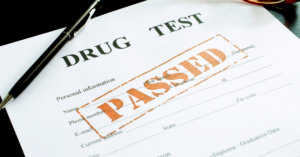

The image of a person experiencing psychosis has been perverted and twisted by the media and pop culture. Portrayals often veer into sensationalism, portraying individuals as dangerous or unpredictable, perpetuating harmful stereotypes and misconceptions. However, the reality of psychotic disorders is far more nuanced, encompassing a spectrum of conditions that profoundly affect an individual’s perception of reality. As a proud provider of treatment for psychotic disorders, Diamond Recovery works hard to offer people in need the support and tools they need to succeed.
Psychotic disorders are a type of mental illness marked by a disconnection from reality, which frequently includes delusions, hallucinations, disordered thinking, and impaired insight. These situations have the potential to profoundly affect a person’s worldview, which can cause problems with day-to-day activities and interpersonal interactions. Comprehending the distinct categories of psychotic disorders is crucial for accurate diagnosis and management.
Some of the main types of psychotic disorders include:
Treatment strategies must be specific to the unique obstacles posed by each type of psychotic disorder. Improving the quality of life for those impacted by these complex disorders requires early intervention, thorough assessment, and continuous care. Specialists in mental health are better equipped to diagnose and treat patients with psychotic disorders by identifying the symptoms and comprehending the distinctions between different kinds of disorders.
Although there isn’t a cure for psychotic disorders at this point, there are effective treatments that can help control symptoms while improving overall well-being. In many circumstances, medications like antipsychotics can help reduce symptoms of psychosis, including delusions and hallucinations. Also, psychotherapy—specifically, supportive therapy and cognitive-behavioral therapy (CBT)—can help people manage their stress, improve their interpersonal skills, and cope with their symptoms.
It’s crucial to remember that the prognosis for psychotic conditions varies greatly based on several variables, including the precise diagnosis of the patient, the intensity of their symptoms, and the availability of support and treatment facilities. While some patients may benefit greatly from treatment and make a full recovery, others might need continuous assistance to manage their illness and avoid relapses. Improving outcomes for people with psychotic disorders requires early intervention, comprehensive care, and a team approach involving mental health providers, family members, and other support networks.
In our commitment to promoting understanding and support for those affected by psychotic disorders, we strive to challenge misconceptions and offer avenues for recovery. Through our comprehensive Florida mental health programs and therapy initiatives, we provide tailored interventions aimed at empowering individuals on their journey toward healing and well-being. Just as diamonds emerge from pressure and time, we believe in the resilience of the human spirit and the potential for growth and transformation.

Creating foundations of solution for those suffering from substance use disorders.
Licensed by the State Department of Health Care Services
License: 191117AP
Expires: 01/31/2026
© Diamond Recovery 2024
About Us
Quick Links